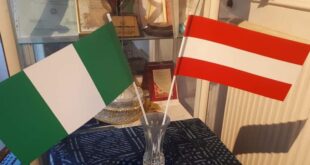Ghana celebrates its independence today, 6 March.
A big military parade, political speeches and cultural performances will characterise the national celebrations at the Independence Square in Accra.
Music and dance will fill the beaches of the West African country as citizens use the public holiday to enjoy themselves and everything appears to be in the national colours of red, yellow and green to remember the independence of the country from Britain 60 years ago.
The path to independence
In 1949, after 75 years of British colonial rule, the Convention People’s Party (CPP) was founded by Kwame Nkrumah. In the first years of its existence the party organized numerous boycotts and strikes to raise awareness of and protest against the problems associated with colonialism in Ghana.
A year later, in 1950, the first cries for the right of self-determination were being uttered (“Self-Government Now!”). As a result of the agitation, many party officials were incarcerated, one of them was Nkrumah.
Nevertheless the CPP was able to win a big majority in the elections of that year. Nkrumah was immediately released from prison by Governor Charles Noble Arden-Clarke to enable him participate in the self-government administration instituted by the British.
After Nkrumah was elected Prime Minister in 1952, it took another five tumultuous years for the country to gain independence from Great Britain.
These troubled years are reflected in the Ghanaian flag as well: the red represents all the people that worked hard or even died for the independence of Ghana. The star on the other hand is a symbol for Africa’s emancipation and unity in the fight against colonialism.

Biggest African community in Germany
More than 40.000 people with Ghanaian heritage live in Germany, which makes them the biggest African community in the country from south of the Sahara. Half of them still have Ghanaian citizenship.
The main causes of emigration from Ghana were the issues associated with the efforts by the presidency of Kwame Nkrumah to quickly industrialize and modernize the country.
In the immediate period after independence Ghana was considered the richest country in tropical Africa and President Nkrumah embarked on an ambitious modernization programme, which included the building of schools and universities.
That period ended with the overthrow of the president in 1966, pushing the country into an economic crisis. Many Ghanaians’ hopes of entering the middle class were destroyed and they started migrating to other countries.
This was especially the case with students who had wanted to study abroad and people who already had gained their education in Ghana, who started leaving the country. That’s why this period is also known as the “Brain Drain”. Today almost half of Ghanaian university graduates live abroad, which is why they are dubbed the “elite immigrants”.
One of the elite immigrants is Stephen Ampofo, a successful engineer who’s actively engaged as the chair of the African German Network Association. He came to study in Germany in 1989. The son of a cocoa farmer has accomplished everything: he mastered the time intensive and expensive German courses, which he started attending in Ghana. He adjusted to a different culture and graduated from his studies. Now he can even afford to support his friends and family back home using money transfer services like MoneyGram. “I am extremely proud that I was able to give myself and my family an edge by migrating to Germany”.
Still, Stephen Ampofo cannot imagine becoming a German citizen. He wants to go home. “My monthly [money transfer] transactions are also meant to secure my future. I am helping my parents pay off the mortgage on their house which I will own in about 12 years,” he explains.
Akwasi Opoku Edusei from Mannheim has a similar story to tell. He was born in Kumasi, the second largest city in Ghana. He also came to study in Germany at the age of 28.
Today he lives with his wife in one of Europe’s biggest metropolitan areas, the Rhein-Neckar-Region. Initially, Edusei had to adjust to the climate – the Ghanaian weather is what he misses most. To him Ghana still represents paradise, which makes him even more proud on its independence day.
Akwasi Edusei is member of the Ghana Union Mannheim/Ludwigshafen, whose members are campaigning for the development of their home country. Additionally they promote the integration of Ghanaians into the German system.
Aiming to ensure that obstacles will be overcome and possibilities will be utilized, the union organizes different projects, meetings and events. As a point of contact and multiplier of information about “immigrants as entrepreneurs” this organization is one of the most active African unions in Germany. Its members will celebrate their Independence Day by talking about their former life in Ghana, their new experiences in Germany and old memories of the Independence Day celebrations in Ghana.
Oliver Behrens
 THE AFRICAN COURIER. Reporting Africa and its Diaspora! The African Courier is an international magazine published in Germany to report on Africa and the Diaspora African experience. The first issue of the bimonthly magazine appeared on the newsstands on 15 February 1998. The African Courier is a communication forum for European-African political, economic and cultural exchanges, and a voice for Africa in Europe.
THE AFRICAN COURIER. Reporting Africa and its Diaspora! The African Courier is an international magazine published in Germany to report on Africa and the Diaspora African experience. The first issue of the bimonthly magazine appeared on the newsstands on 15 February 1998. The African Courier is a communication forum for European-African political, economic and cultural exchanges, and a voice for Africa in Europe.





























